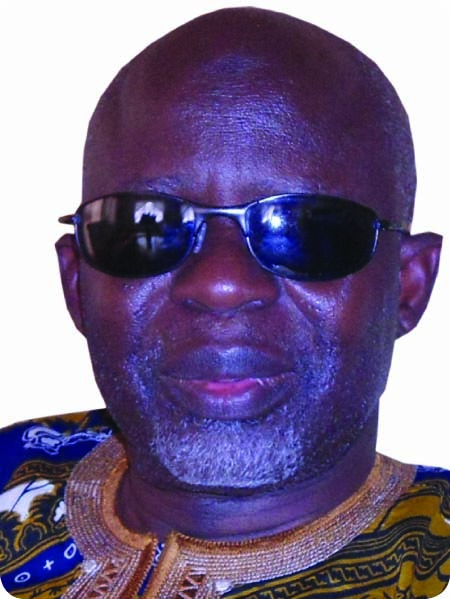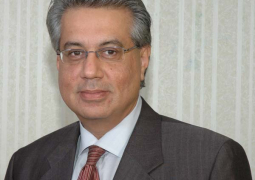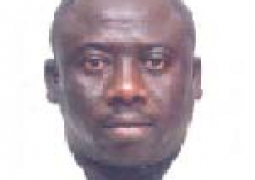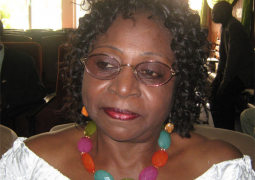
Lawyer Ousainou Darboe, secretary general of the party, said there is an option of challenging the bill to stop it from becoming law, even if it is endorsed by the National Assembly.
“We are not going to accept it from the National Assembly,” he told The Point newspaper in an exclusive interview on Monday at his chambers in Banjul.
However, Darboe did not categorically state how his UDP will challenge the amendments, but emphasised that it could “certainly be challenged”.
The Elections Act, the principal law that governs the conduct of elections in The Gambia, has been amended, once again. The amendment is scheduled to be tabled on 23 June at the ruling party-dominated National Assembly for endorsement.
Among other things, the amendment proposed a D1 million registration fee for a political party, increasing it from not more than D5,000. It also obliges presidential candidates to pay D1 million for their candidature to be endorsed by the Independent Electoral Commission (IEC), in each presidential election. Previously, it was D10,000.
Parliamentary candidates have to also pay D100,000 instead of D5,000 for election; mayoral candidates have to also deposit D50,000 instead of D2,500; and councillors D10,000 instead of D1,500.
“The proposed amendments are preposterous and ridiculous,” the leader of Gambia’s biggest opposition party said. For Lawyer Darboe, the amendment is an attempt by President Jammeh regime’s to create a single party state.
Under Section 100 of the Constitution of The Gambia, the government cannot pass any legislation creating a one party state, but Darboe said the proposed amendment is “certainly an attempt to create one party state”.
“The people should have as many choices of (political) parties as possible, and there should not be any restriction,” he said.
“After all, why register political parties at D1 million when registration for big commercial businesses is not up to D1 million, and these businesses are involved in profit-making undertakings whereas political parties are not,” he added.
According to Darboe, it is possible that when “this horrible legislation” is not in place, new political parties may emerge that Gambians identify to be their choices and they prefer them to the APRC, prefer them to the UDP and all other existing political parties.
“But they [the ruling party] are trying to prevent the emergence of such political parties with this horrible condition, a condition that is incongruous with the right to freedom to form and belong to a political party,” he said.
For the payment for presidential candidates, Darboe said it is not only “preposterous” but it also runs against democracy.
“It is brought to ensure endue restriction on the rights of Gambians who are better presidential candidates, and who the people can vote for in elections,” he said.
He said that when the APRC government took the reins of power in the country, they said they did so to bring democracy and development.
“But they are the ones who day-in day-out are working, making pronouncements, and putting policies in place that are going to kill democracy in this country,” he said.
The bill also obliges parties to be submitting their yearly audited accounts to the IEC.
“If we are given public funds, we will account for it,” he said. “But if I sell my plot of land - I have done that several times - or my family provides funding for the activities of the UDP, what is the business of the IEC to know what my brother has given me; what is their business with what my sister-in-law in the United States has given me?”
“I have absolutely no problem with submitting accounts provided that public funds are given to us, provided that the government funds our activities; which actually happens in other countries,” he said.
The new amendment requires all political parties to have a secretariat in each administrative region of The Gambia.
“We have a bureau in Basse, Bansang, Soma, and Banjul. But the APRC doesn’t have any bureau: you point to me any bureau of the APRC, because the one in Kanifing (the APRC national bureau) is a confiscated property. They use offices of the governors and mayors for their political activities,” he said.
According to Darboe, if the National Assembly members pass the bill, they would be digging their own graves.
“None of them can raise D100,000 on his own to pay and contest in parliamentary elections. When this bill is passed, I can tell you, members of the National Assembly will have their payment paid by (President) Yahya Jammeh not the party and then you become hostages for him.”
Under the proposed amendment, the monetary conditions required to be satisfied by any person who wishes to contest for any of the elective offices constitute unreasonable restrictions to the exercise of guaranteed rights to do so, according to the opposition leader.




